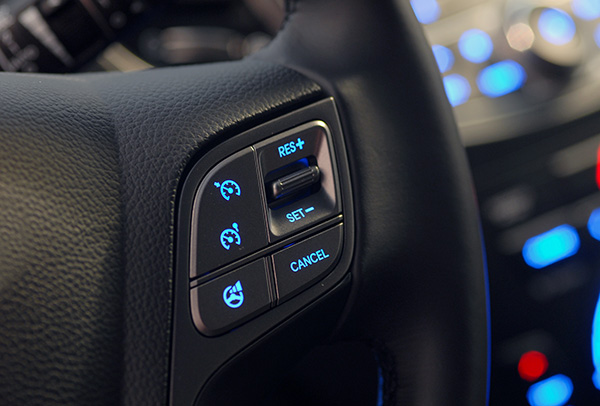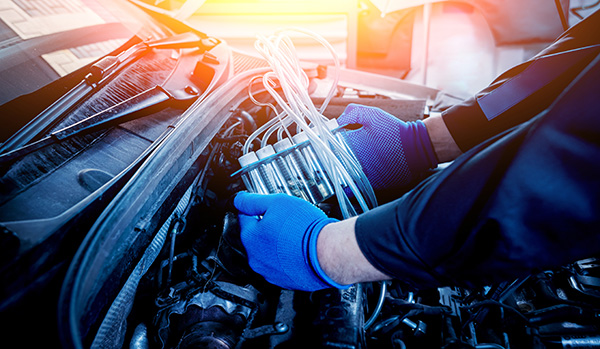Posted on 10/31/2024

For years, many drivers have believed that warming up their car on a cold morning is necessary for proper engine function. But with advances in automotive technology, you might wonder if this ritual is still necessary for modern vehicles. The simple answer is no—modern cars don't need to be warmed up like older models once did. However, some nuances are worth exploring to understand the reasoning behind this shift and when it might still make sense to let your car idle briefly before driving. The Myth of Warming Up The idea that cars need to be warmed is a recent update from the days when carbureted engines were common. These older engines required some time to circulate oil and reach an optimal operating temperature before they could run efficiently. If driven cold, these engines might stall, misfire, or suffer wear and tear due to improper lubrication. But carbureted engines have largely been replaced by fuel-injected engines, which are far more advanced ... read more
Posted on 9/27/2024

Driving on wet roads can turn from routine to risky in the blink of an eye. When rainwater covers the asphalt, it becomes a playground for hydroplaning, a dangerous situation where your car loses traction and feels like it's floating. Hydroplaning can happen to any driver, but the good news is, there are ways to avoid it. What Is Hydroplaning Hydroplaning happens when your tires lose contact with the road due to a layer of water. When the water between your tires and the road builds up faster than your tires can channel it away, your car begins to glide uncontrollably. The result? You lose control of steering, braking, and acceleration, which is why it’s so dangerous. It’s especially common in the first few minutes of rainfall when oil and dirt mix with water on the surface of the road, making it extra slippery. How Speed Impacts Hydroplaning One of the biggest culprits of hydroplaning is driving too fast for the road conditions. Th ... read more
Posted on 8/30/2024

Catching a whiff of gasoline inside your car can be unsettling. Whether it happens right after filling up or seemingly out of nowhere, the strong smell of gas is hard to ignore. But is it something you should worry about? The short answer is yes. While a slight odor might seem harmless, persistent gas smells often signal an underlying issue that could be dangerous if left unchecked. Let's explore why your car might smell like gas and whether it's safe to keep driving when it does. Common Causes of Gasoline Smells in Your Car There are several potential reasons why your car might smell like gas, and not all of them are harmless. Understanding the possible causes can help you determine the severity of the issue and whether immediate action is needed. 1. Fuel System Leaks The most common and dangerous cause of a gasoline smell is a leak in your car's fuel system. This could be from a cracked fuel line, a faulty fuel injector, or even a dama ... read more
Posted on 7/26/2024

Choosing the right tires for your vehicle can feel like navigating a maze. With countless brands, types, and specifications, it's easy to feel overwhelmed. Picking the perfect tires doesn't have to be a daunting task. With some knowledge and expert tips, you'll be equipped to make the best choice for your car and driving needs. Whether you're aiming for superior performance, enhanced safety, or improved fuel efficiency, here's how to ensure you're rolling on the right rubber. Evaluate Your Driving Needs Before you even start looking at tires, it's important to understand your driving habits and needs. Are you a city driver cruising on smooth pavements? Or do you frequently venture off-road, tackling rugged terrain? Maybe you're a highway warrior, clocking in long distances on the open road. Knowing your primary driving conditions helps narrow down the tire types best suited for you. All-season tires are versatile and suitable fo ... read more
Posted on 6/27/2024

Many factors come into play when it comes to passing your diesel vehicle's emission tests. Among these, the Diesel Particulate Filter (DPF) is a crucial component of diesel engines. If you've ever wondered about the role of a DPF and how a faulty one can impact your vehicle's performance during an emission test, you're in the right place. Let's delve into the intricacies of the DPF, understand its importance, and explore the consequences of a malfunctioning DPF on your car's emission tests. The Diesel Particulate Filter (DPF) The diesel particulate filter is a device integrated into diesel vehicle exhaust systems. Its primary function is to capture and store soot particles from the engine exhaust, thereby reducing the number of harmful emissions released into the atmosphere. Essentially, the DPF helps to minimize the environmental impact of diesel engines by trapping ... read more
Posted on 5/29/2024

Car maintenance is essential for the longevity and performance of your vehicle. Among the many issues that can arise, exhaust leaks often go unnoticed. However, they pose significant risks to your vehicle and your health and safety. We'll explain how car exhaust leaks impact your safety, why they occur, and what you can do to prevent them. The Hidden Dangers of Exhaust Leaks When you think of car maintenance, exhaust leaks might not be the first thing that comes to mind. Yet, these leaks can be insidious, causing damage over time that can lead to serious safety concerns. Exhaust leaks allow harmful gasses to escape, potentially entering the cabin and affecting both your health and the environment. Understanding the dangers of exhaust leaks can help you proactively protect yourself and your passengers. What Causes Exhaust Leaks in Cars?Corrosi ... read more
Posted on 4/28/2024

Are you making the most out of your car's cruise control feature? In this article, we'll explore the dos and don'ts of using cruise control to enhance your driving experience and ensure safety on the road. Why You Want to Use Cruise Control Cruise control is a convenient feature that allows drivers to set and maintain a desired speed without constant foot pressure on the accelerator pedal. It can be particularly useful during long highway drives, offering comfort and reducing driver fatigue. Dos of Using Cruise Control Using cruise control comes with several benefits when employed correctly: It's best suited for consistent roads with minimal traffic and steady traffic flow. On highways, it can maintain a constant speed, which can improve fuel efficiency and reduce driver fatigue during long journeys. While cruise control aids in maintaining speed, it ... read more
Posted on 3/28/2024

Keeping your car's fuel system in top condition is essential for optimal performance and fuel efficiency. From the fuel tank to the engine, every component plays a crucial role in ensuring a smooth and reliable driving experience. Keep Your Fuel Tank Full Maintaining a full or near-full fuel tank can help prevent condensation from forming inside the tank, reducing the risk of water contamination in the fuel system. Running your car on low fuel levels can cause the fuel pump to work harder, leading to premature wear and potential failure. Aim to keep your fuel tank at least half full whenever possible. Regular Fuel Filter Replacement Your car's fuel filter removes impurities and contaminants from the fuel before it reaches the engine. Over time, the filter can become clogged with dirt and debris, affecting engine performance and fuel efficiency. To prevent this, it's essential to replace the fuel filter at regular intervals as your ... read more
Posted on 2/29/2024
.jpeg)
Ever felt like your car has a mind of its own, veering off course or pulling to one side? It might not be your imagination playing tricks on you. Your wheels could be crying out for attention, signaling that they're in dire need of alignment. But how can you decipher these subtle messages your car sends? Let's explore seven unmistakable signs that your wheels are begging for alignment. 1. Telltale Sign of Misalignment Take a moment to inspect your tires. Do you notice uneven tread wear, with one side wearing down faster than the other? This uneven wear pattern is a clear indicator that your wheels are out of alignment. When your wheels aren't properly aligned, they exert uneven pressure on the tires, causing premature wear and tear. 2. Persistent Pulling or Drifting Have you ever felt like your car has a mind of its own, drifting to one side eve ... read more
Posted on 1/27/2024
.jpeg)
The Ford F-150, renowned for its durability and performance, is a favorite among truck enthusiasts. However, to ensure its longevity and maintain its top-notch condition, regular maintenance is key. Here are nine essential tips to keep your Ford F-150 running smoothly. Regular Oil Changes One of the simplest yet most crucial steps in maintaining your F-150 is regular oil changes. Engine oil lubricates, cleans, and cools the internal components of your engine. Depending on your model and the type of oil used, change the oil every 5,000 to 10,000 miles. Tire Maintenance Your tires are the only point of contact between your truck and the road. Regularly check the tire pressure and keep them inflated to the recommended PSI. Also, get them rotated and balanced every 5,000 to 8,000 m ... read more